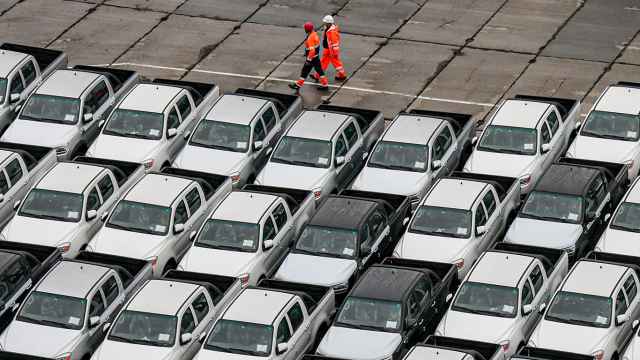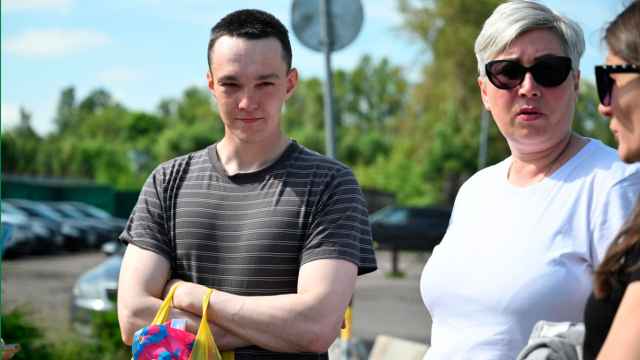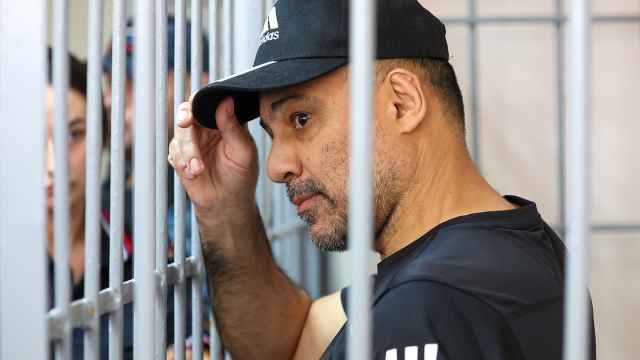A large weekend rally in Kaliningrad that called for Prime Minister Vladimir Putin's ouster has stirred worries in the Kremlin and United Russia, both of which have sent officials to the Baltic exclave to investigate.
United Russia said Tuesday that it believed opposition groups had deceived Kaliningrad residents into participating in Saturday's protest, which attracted up to 12,000 people for the biggest anti-government rally in a decade.
A senior United Russia official hinted that Kaliningrad Governor Georgy Boos, who was also a target of protesters' anger, might be called into account for permitting the protest.
"We need to investigate the situation … [and] look into how strongly the residents were misinformed by the opposition and how adequately the local authorities acted," said Sergei Neverov, deputy secretary of United Russia's general council.
Putin, who heads United Russia, has not made any public statement about the rally, which was headlined by liberal opposition leaders Boris Nemtsov and Ilya Yashin.
Kaliningrad authorities did not ban the rally or deploy police to disperse it — in sharp contrast to Moscow where local officials prohibited an anti-government protest by human rights activists on Sunday evening and sent riot police to break it up, briefly detaining more than 100 of the 300 protesters. Some of the detainees had participated in the Kaliningrad rally.
The U.S. State Department condemned the detentions Monday, saying the police's actions violated the right of free assembly.
The Kremlin's envoy to the Northwest Federal District, Ilya Klebanov, flew to Kaliningrad with Deputy Prosecutor Alexander Gutsan for a meeting on Monday with Boos. The visit forced Boos to delay his plans to go on vacation that day, Kommersant reported.
United Russia sent a large delegation to Kaliningrad on Tuesday "to sort out the situation" and meet with local authorities, Neverov told Ekho Moskvy radio.
Kaliningrad's leadership gathered for an intense brainstorming session after the rally, news reports said.
Boos, in a terse statement released by his administration late Monday, called on the Kremlin to reinstate the "against all" option on voting ballots in order to help the authorities and political parties evaluate their popularity objectively.
"This is the voter's point of view, and it will be worse if he can't express it," Boos said in the statement, which was carried by Interfax.
But Tuesday, Boos denied in a statement posted on United Russia's web site that he had backed for the return of the "against all" option. Boos is a member of United Russia's higher council.
Opposition politicians had strongly opposed the removal of the "against all" option from ballots, a measure pushed through the State Duma by United Russia in 2006.
Repeated calls to Boos' office for clarification on the conflicting statements went unanswered Tuesday.
United Russia denied media reports that it would hold a 100,000-member rally in support of Putin and Boos in Kaliningrad later this month.
Although anti-government rallies in which protesters call for President Dmitry Medvedev to sack Putin have reached a scale unseen for many years, they are unlikely to change the balance in the ruling tandem, said Alexei Mukhin, an analyst at the Center for Political Information.
Alexei Titkov, an analyst at the Institute of Regional Politics, agreed, saying the anger was very local.
He said, however, that the rally might ruin the rest of Boos' term, which expires in September.
"Boos is interested in winning good marks now because a question hangs over whether he will be reappointed," Titkov said.
A series of smaller anti-government protests have been held in several dozen cities in recent weeks.
The protests have not seemed to bother Putin, whose popularity remains high. A poll by state-run VTsIOM in January put his trust rating at 54 percent, the highest among politicians. Medvedev received 42 percent.
A Message from The Moscow Times:
Dear readers,
We are facing unprecedented challenges. Russia's Prosecutor General's Office has designated The Moscow Times as an "undesirable" organization, criminalizing our work and putting our staff at risk of prosecution. This follows our earlier unjust labeling as a "foreign agent."
These actions are direct attempts to silence independent journalism in Russia. The authorities claim our work "discredits the decisions of the Russian leadership." We see things differently: we strive to provide accurate, unbiased reporting on Russia.
We, the journalists of The Moscow Times, refuse to be silenced. But to continue our work, we need your help.
Your support, no matter how small, makes a world of difference. If you can, please support us monthly starting from just $2. It's quick to set up, and every contribution makes a significant impact.
By supporting The Moscow Times, you're defending open, independent journalism in the face of repression. Thank you for standing with us.
Remind me later.





